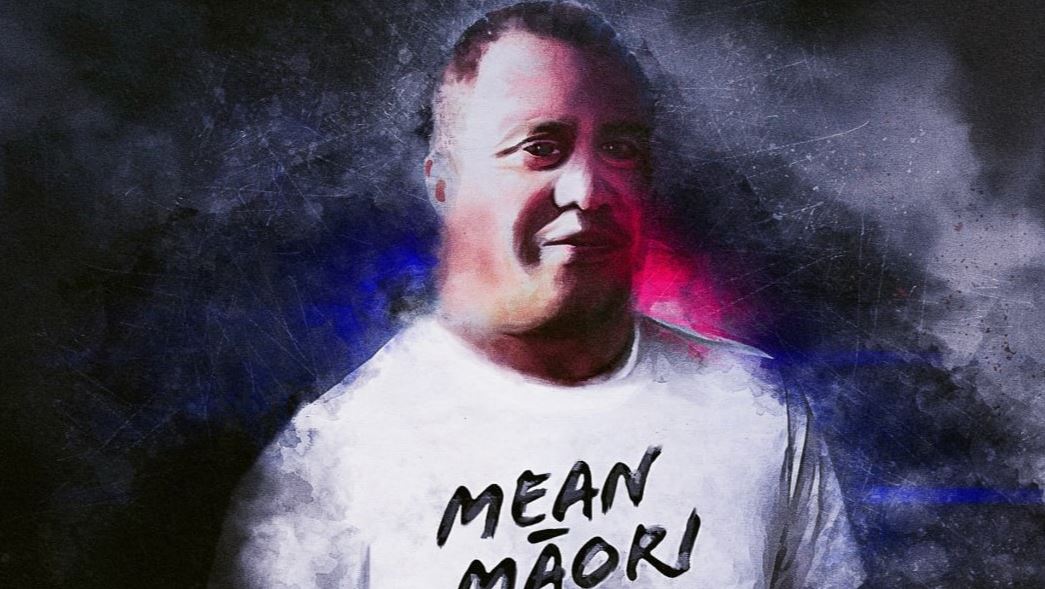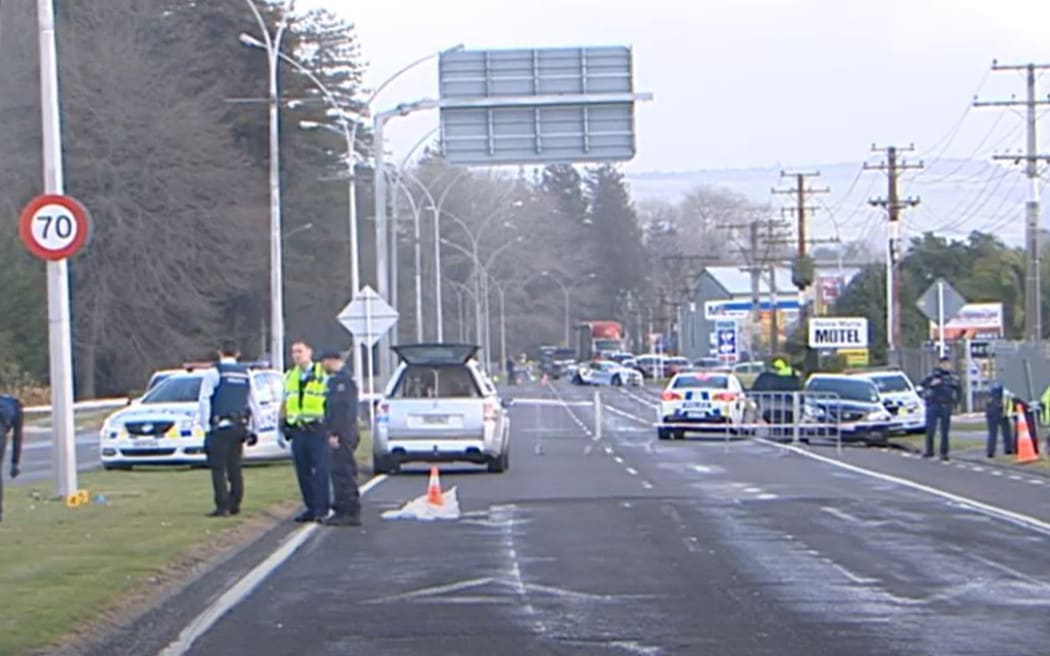‘Ninja style’ bail checks before police shooting of Shargin Stephens
Tuesday 28 June 2022 | Written by RNZ | Published in New Zealand, Regional

Police carried out 70 bail checks for Shargin Stephens in the 38 days leading up to their fatal shooting of him. Photo: RNZ/Vinay Ranchhod
Police emails seen by RNZ reveal officers planned to hide "ninja style" close to Shargin Stephens' house late at night to try and catch him breaching bail.
The emails show police planned "random and multiple" bail checks on Stephens and egged each other on. One officer addressed his colleagues as "fellow nightstalker bros" and another signed off with "happy hunting".
Stephens, who was frustrated at night-time bail checks and texted a friend complaining that police "won't let me sleep", was shot and killed in Rotorua in July 2016 after lashing out and smashing up an empty police car.
The Independent Police Conduct Authority (IPCA), in its 2017 investigation into the shooting, said the police bail checks were reasonable and did not contribute to Stephens lashing out.
But after RNZ's reporting of the case in 2021 the IPCA reopened its investigation and this year revised its findings to say the bail checks were oppressive and may have been a factor in the shooting.
According to the original IPCA report the "primary purpose" of the police bail checks was to ensure Stephens complied with court-imposed conditions not to consume alcohol or drugs.
But the police emails show officers were also motivated by suspicions that Stephens, a 35-year-old Māori man, was involved in commercial burglaries in Rotorua.
In a June 2015 email, a senior sergeant told his colleagues that Stephens was a suspect in a liquor store burglary. "Please ensure priority bail checks on Stephens. Consider random and multiple checks on him. Happy hunting."
Another officer suggested a ninja-style operation to catch Stephens out.
The officer addressed the email to his "fellow nightstalker bros" and said police would be "going hard" until Stephens was sentenced. "Get the guys to do a bail check on Stephens at [his home address] straight away - see if he can be breached, or even look at staying ninja styles close to his home from 0100 onwards and see if he is picked up or walks out."

Deputy Police Commissioner Tania Kura said she did not condone the tone of language used in the emails.
"It's disrespectful and does not reflect our police values."
She said the emails were from six years ago and police had put a lot of work into achieving a "fundamental change in culture" over that time.
Kura said Bay of Plenty District police had provided extra training for staff "with the aim to help our people understand the impact of our attitudes, language, and behaviour on the people we interact with".
While the IPCA was told the bail checks were to ensure Stephens was abiding by his bail conditions, the emails show that in March 2016 Rotorua police had put him on a list of the city's "top ten offenders".
The list was not factually based, according to an email from a police intelligence officer. "I have been tasked to provide an anecdotal list of ten active offenders for burglary, unlawful taking and theft," the officer emailed colleagues. "Attached is a list I have compiled. Can you please check it and let me know if it's reasonably correct and/or if anyone is missing. I am struggling for unlawful takers as most of the prolific ones are in custody. Nominations please!"
Police records show Stephens had 72 convictions between 1997 and 2015, mainly for property offending and vehicle crime, and over that time had committed 19 offences while on bail.
But, according to Corrections documents, Stephens was trying to turn his life around in the months before he was shot.
A probation officer who visited his home in October 2015, after Stephens was sentenced to home detention on drug and burglary charges, said his compliance had been "outstanding" and he had shown "huge motivation to complete his sentence successfully".
By April 2016 Stephens had completed a course in orchard management and on 12 July, two days before he was shot, Corrections allowed him to vary his bail conditions so he could work full time at an orchard in Maketu.
Police checked out the bail arrangements and the orchard boss said Stephens was "a trained pruner and is good at his work".
Bail checks often in the early hours
After Stephens was shot, police told the IPCA that the bail checks, which often occurred late at night and included visits at 1.45am, 2.15am and 3.49am, did not appear to have bothered him.
One officer told the IPCA that "Mr Stephens was always up, it didn't matter what time of the day or night it was" and that "it never looked like he had just rolled out of bed".
But in sworn statements, submitted to the police homicide investigation, officers admitted the bail checks woke him multiple times. One sergeant woke Stephens up on six of his bail checks.
The emails reveal police knew the impact the bail checks were having. In August 2016, about a month after Stephens was shot, a detective inspector emailed all the Rotorua officers who had bail checked Stephens, urging them to make formal written statements.
"These bail checks were known to upset Stephens and may have been a motive as to why he behaved the way he did," the email says.

A detective from the Rotorua Criminal Investigation Branch told the officers who bail checked Stephens that "this is a very sensitive investigation involving our own colleagues" and the information was required by the IPCA.
The officers were then asked to provide details of Stephens' demeanour during the bail checks and for any comments he made - "especially adverse" comments.
But police records show Stephens did not breach his bail conditions in any of the 70 bail checks police made in the 38 days leading up to the shooting.
"Given Mr Stephens was being electronically monitored, this frequency of bail checking was excessive and unreasonable," the IPCA's revised 2022 report said. The report said the bail checking "may have contributed to Mr Stephens' views of police and the actions he took" in smashing up the police car on 14 July, 2016.
The IPCA said police were entitled to check Stephens was not breaching his bail conditions by using alcohol and drugs. "But to check him 70 times over 38 days, sometimes multiple times at night, was oppressive," the IPCA said. "This is especially as police found no evidence of Mr Stephens not complying with these conditions."
Stephens' frustration and anger about the bail checks was "understandable and justified", the IPCA now says. The IPCA also found police were not adequately assessing the "frequency or reasonableness" of bail checks and asked them to review all aspects of its policy.
Deputy Commissioner Kura said police would soon appoint a senior police manager to do the review, which would likely be finished in late 2022.
When RNZ published its investigation into the shooting of Stephens, The Untold Story of How Police Shot Shargin Stephens, in June 2021 the police reacted by seeking an interim court order "suppressing all the evidence provided in this proceeding".
Coroner J P Ryan issued a non-publication order under section 74 of the Coroners Act, saying further media stories could have "a seriously deleterious effect on the mental health state of the police officers involved".
The gagging order was in place for a year until successful legal action by RNZ saw it lifted in June.
Coroner Ryan has now stood aside and Michael Robb, a former Crown prosecutor, becomes the fourth coroner to preside over the inquest, in the six years the Stephens whānau has been waiting for a hearing.














































